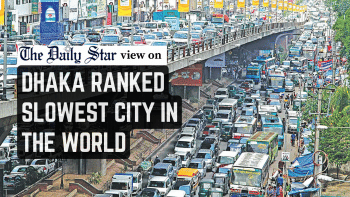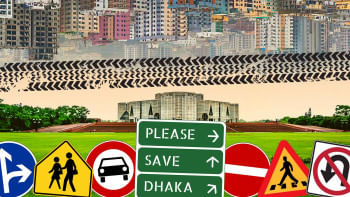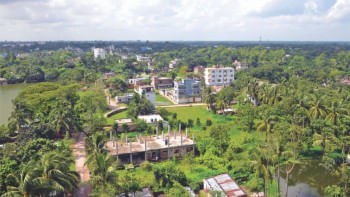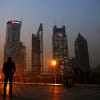Dhaka can only be saved by decentralisation

Historically, Bangladesh's urbanisation policies have been centred on Dhaka, and this will likely remain true in the future as well. But the ongoing trend of rapid, unplanned urbanisation in the city has also underscored another truth: without effective decentralisation, Dhaka's future will most likely be doomed. This is a message that urban experts have been trying to impress upon our policymakers for long, to little effect so far. Experts at a recent event have again stressed the need for decentralisation, creating more opportunities outside Dhaka, improving rural living conditions, and strengthening local government bodies so that they have enough discretionary powers to function on their own.
Some of the statistics that emerged from the conference highlight the urgency of such interventions. For example, Dhaka is now home to nearly 39 percent of the country's urban population—which indicates how unbalanced its transformation has been. Moreover, over 60 percent of its households are led by individuals who have migrated from other districts, primarily driven by rural poverty, landlessness, river erosion, and climate-induced disasters. Dhaka's allure lies in its economic opportunities, superior education, healthcare, and cultural facilities. Our highly centralised governance system also makes it a must-visit destination. However, this concentration of resources, opportunities, and powers in the district has led to not just disparities in other districts, especially rural areas, but also a decline in its own liveability standard.
This last feature of present-day Dhaka is one that we have talked about repeatedly in recent years. The quality of life in Dhaka is directly affected by its rapid population growth. That the basic needs of the majority of its residents are not being met is evident among different socioeconomic groups. Moreover, heavy traffic congestion compared to its insufficient road infrastructure is greatly inconveniencing commuters. There is also the abysmal quality of air endangering people's health. In fact, pollutions of all kinds are prevalent across the megacity. Its state of law and order is another red flag. So, we need to decentralise Dhaka for the sake of its residents but also for other districts that are struggling due to inadequate infrastructure and services.
Experts have made various suggestions about how to go about decentralisation—administratively, economically, educationally, culturally, etc.—which the government should take note of. Strengthening other regional urban centres can also take some of the pressure off Dhaka, making them more attractive for residence, investment and, of course, internal migration. To achieve these goals, local government bodies also need to be empowered. These efforts are vital for the future of Dhaka and, by extension, the country as well.


 For all latest news, follow The Daily Star's Google News channel.
For all latest news, follow The Daily Star's Google News channel. 









Comments